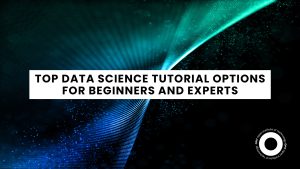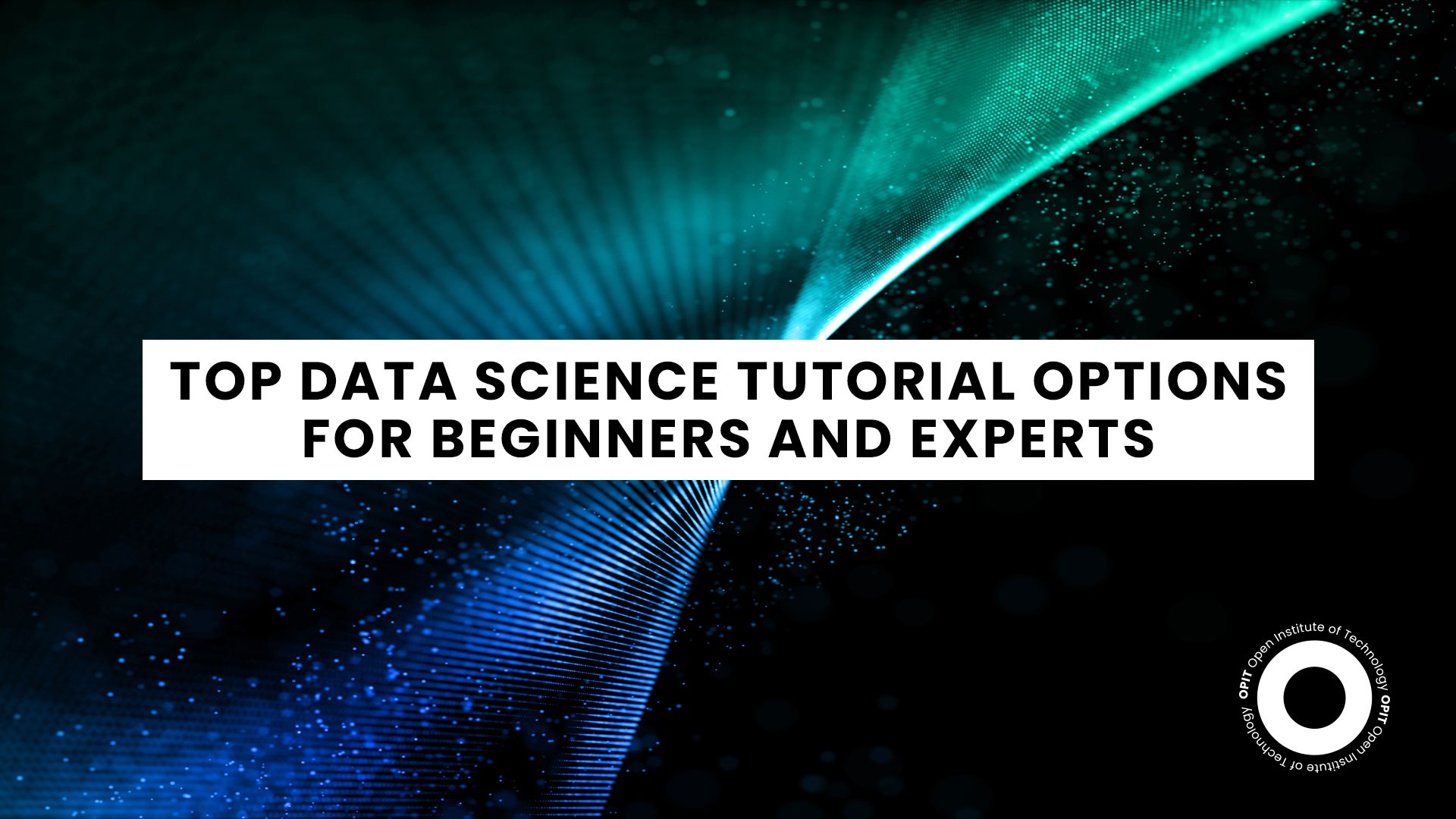Imagine that you own a business that has thousands of customers. You have data on every one of these customers, ranging from basic contact information to data about their purchasing habits. What you have is a huge dataset, and you want to extract information from that dataset in the form of patterns and insights with which you can make decisions.
You’d need a data scientist.
Data scientists specialize in shining a spotlight on the most important insights found in large datasets. They use a range of tools – from complex algorithms to artificial intelligence – to make that spotlight shine brighter. And in a world of Big Data, the data scientist’s role is more important now than ever. With these six courses, split between beginner, intermediate, and advanced levels, you put yourself in a prime position to become the data scientist that so many companies need.
Best Data Science Tutorials for Beginners
Everybody has to start somewhere, and these data science beginner tutorial options are the ideal first step on your journey into the field.
Data Science Tutorial for Beginners (Java T Point)
If you’re looking for a succinct explanation of what data science is, what it involves, and how it applies in the modern world, Java T Point’s tutorial answers the key questions. It’s structured as a long-form article rather than a set of modules or lessons, but it’s well-organized and covers all of the key points in enough depth to make it a handy primer for the data science novice.
This data science tutorial covers a range of topics, from basic explanations of the components of data science to descriptions of the types of jobs available for those who enter the field. It also digs into some of the machine learning aspects of data science, such as decision trees, so you can see how AI ties into modern data science practices.
Granted, the fact that it’s not a traditional course means there’s no community underpinning the tutorial or certification for completion. But as a primer that gives you some foundational knowledge, it’s a superb starting point.
Data Science Full Course – Learn Data Science in 10 Hours (Edureka)
Offered via YouTube, this data science tutorial makes the lofty claim of being able to teach you all you need to know about the subject in 10 hours. While that isn’t strictly true (the more complex aspects are covered superficially), it’s still a great primer for those looking to build a solid foundation in the subject.
The tutorial is a great choice for visual learners, and it covers topics like data categorization, statistics, and the data lifecycle. Charts, graphs, and other visual learning tools abound, with the constant narration helping you to understand what you’re seeing on screen.
As a full 10-hour video, the tutorial could do with being broken up into separate lessons to make it easier to keep your place. But as long as you’re happy to record time stamps (or don’t mind the full 10 hours in one sitting), the course delivers plenty of useful information.
Check out OPIT degrees
-
Career aligned
-
Fully Online
-
EU-accredited institution
Best Data Science Tutorials for Intermediate Learners
After completing a few of the best data science tutorials for beginners, you’re ready to get your feet wet with intermediate courses that dig into the coding that underpins data science.
Data Science with Python Tutorial (Geeksforgeeks)
Python is the programming language of choice for data scientists, as evidenced by the fact that 69% of data scientists report using Python daily. It’s no surprise, either, as Python is an extremely flexible language that’s ideal for creating the algorithms needed in data science due to its vast range of libraries. The challenge you face is twofold – figuring out how to code in Python and understanding what libraries you need to confront common data science challenges.
Geeksforgeeks offers a data science tutorial that confronts both of those challenges and helps you see how Python applies to the data science field in a practical sense. Starting with a brief introduction to the data science field (the beginner-level tutorials in this list offer more depth), it then dives into everything you need to know about Python. You’ll learn about the basics of Python, such as functions and control statements, before moving into how you can use the language for visualizing data and creating machine learning models.
It’s a highly specialized tutorial, though it’s one that’s essential for prospective data scientists, given the popularity of Python in the field. Unfortunately, there’s no certification for completion. However, it’ll equip you with so much Python knowledge that you can feel confident moving into a more advanced study without worrying about your coding chops.
Data Science and Machine Learning Essentials (Microsoft via Udemy)
Like the above course, Microsoft’s offering covers Python, albeit in far less depth. However, it stands out because it also covers a couple of other languages used commonly in data science – namely R and Azure Machine Learning. As a result, the course is an excellent choice for intermediate data scientists who want to get to grips with the main three programming languages they’ll likely use in the field.
It’s a five-week course, with Microsoft recommending between three and four hours of learning per week, and it’s delivered in English. Each weekly module is capped with a quiz that tests your knowledge. The modules cover everything from data science basics to creating machine learning models in Azure Machine Learning.
Of course, the biggest benefit of this course (aside from the content) is the Microsoft-approved certification you get at the end. Any employer who sees Microsoft on your CV will sit up and take notice. Still, you’ll need to build on what you learn here with a more advanced data science tutorial, ideally one that covers more real-world applications of working with data.
Best Data Science Tutorials for Advanced Learners
Once you’re secure in your foundational knowledge and you have a good idea of how to apply data science practices, you’re ready to step into a more advanced data science tutorial. Here are two options.
Data Science Tutorial – Learn Data Science From Scratch (DataFlair)
Think of DataFlair’s main data science tutorial page as a hub world in a video game. There are dozens of different directions in which to take your studying, and you’re in complete control of where you go and what you learn. The page hosts over 370 tutorials (free of charge) that cover everything from the basics of data science to using data mining and Python to parse through massive data sets.
The sheer depth of coverage makes this set of tutorials ideal for the advanced learner. The more basic sides of the course can fill in any knowledge gaps that weren’t covered in previous tutorials you’ve taken. And on the more advanced side, you’ll be exposed to real-world examples that show you how to apply your theoretical knowledge in a practical environment. There’s even a set of quizzes that you can use to test your understanding of what you read.
There are some drawbacks, namely that this data science tutorial doesn’t offer a certificate and is less interactive than many paid courses. However, self-paced learners who thrive when presented with pages of theoretical knowledge will find almost everything they need to know about data science in this collection.
MicroMasters® Program in Statistics and Data Science (Massachusetts Institute of Technology)
By the time you’re at the advanced stage of learning data science, you’ll probably want an official certification to take pride of place on your CV. This mini-Master’s degree comes from the Massachusetts Institute of Technology (MIT), which is one of the world’s leading technology and engineering schools.
The course lasts for one year and two months, with between 10 and 14 hours of study required per week, making it a choice only for those who can commit to a part-time consistent learning schedule. It’s also not a free data science tutorial, as you’ll have to pay £1,210 (approx. €1,401) for the program.
If you can vault those hurdles, you get a graduate-level course that teaches you how to develop the machine learning models used in modern data science. Plus, having the letters “MIT” on your course certification (and the networking opportunities that come with learning from some of the institutions leading professors) makes this course even more valuable.
Find the Best Data Science Tutorials for Your Skill Level
Whether you’re taking your first tentative steps into the world of data science or you’re an advanced learner looking to brush up your skills, there’s a data science tutorial out there for you. The six highlighted in this article represent the best data science tutorials available (two for each skill level) on the web.
Let’s close by answering a key question – why complete one of these tutorials?
Precedence Research has the answer, stating that the data science field will enjoy a compound annual growth rate (CAGR) of 16.43% between 2022 and 2030. Rapid growth means more job opportunities (and higher salaries) for those with data science skills. Use these tutorials to build your skill base before shifting your career focus to a field that looks set to explode as Big Data becomes more crucial to how companies operate.
Check out OPIT degrees
-
Career aligned
-
Fully Online
-
EU-accredited institution






